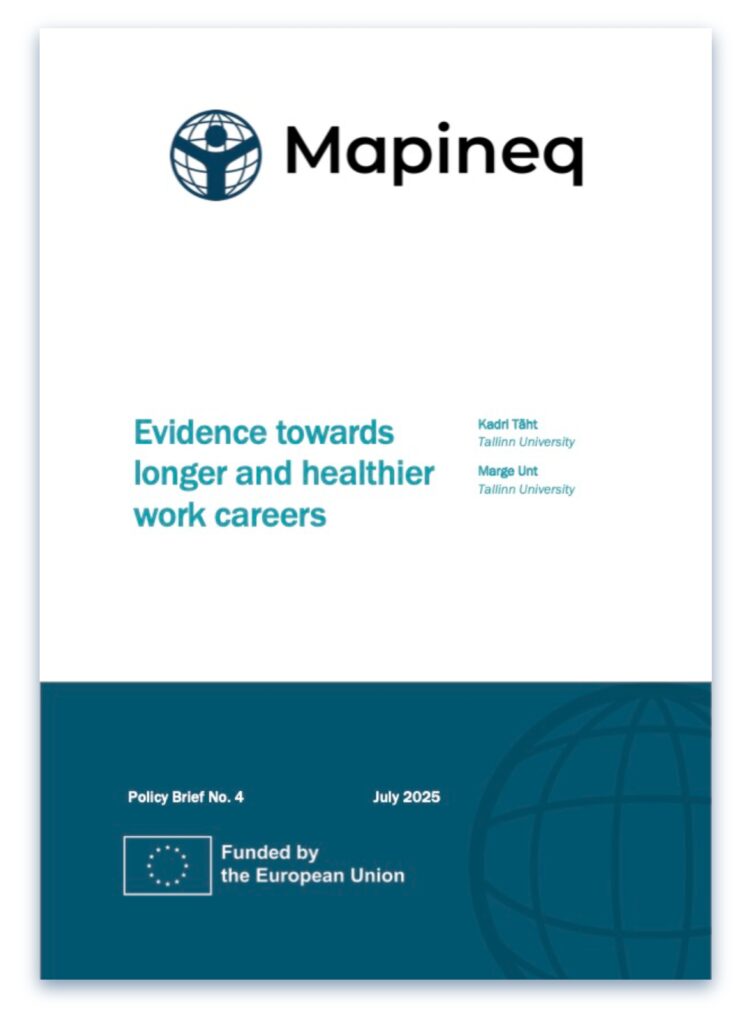Evidence towards longer and healthier work careers
This policy brief explores the challenges and opportunities for extending and improving late-career outcomes among older adults in Europe. Using EU-SILC 2021 data across 27 countries, the study analyzes six key indicators: unemployment, non-employment, occupational status, disposable income, poverty risk, and life satisfaction. It identifies education, health, and family situation as major individual-level factors, while regional economic conditions and access to care services shape contextual disparities. The findings underscore the need for integrated policies promoting lifelong learning, quality employment, health support, and income security. Targeted interventions are recommended to reduce inequalities and support longer, healthier work lives for Europe’s ageing population.
By Kadri Täht, & Marge Unt.

Promote lifelong learning: Governments should invest in flexible, subsidized upskilling and reskilling programs to help older workers adapt to changing job markets and extend their careers.

Improve job quality and workplace conditions: Encourage employers to offer ergonomic, flexible, and age-friendly work environments, supported by hiring incentives for older applicants.

Strengthen health and care support:
Expand preventive and occupational health services, support return-to-work programs, and improve access to formal care to reduce employment interruptions for older carers.

Reduce inequality and regional disparities: Enhance income security through targeted transfers and pension credits, and direct EU cohesion funds to disadvantaged regions for job creation and care infrastructure.

